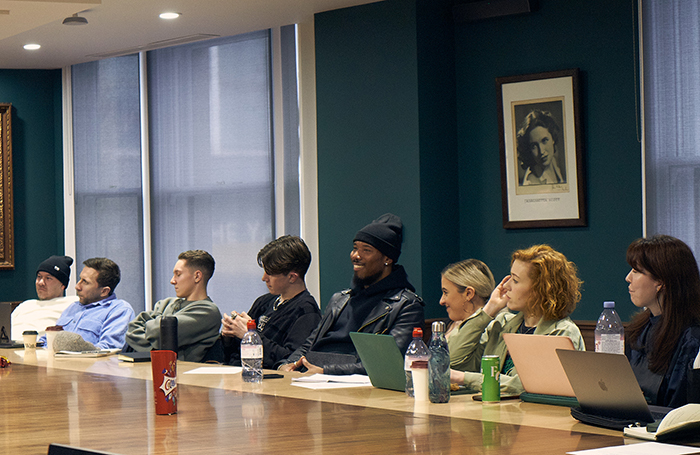Dancers' proposal aims to limit time talent is put on unpaid 'standby'
Dancers have put forward a proposal to stop productions from holding talent on standby without pay – a practice known as ‘pencilling’ – for unreasonable amounts of time, in a move that is aimed at "holding every party accountable".
The proposal from Dancers Network, a volunteer-run organisation that promotes the rights of dancers, comes as a survey from the group revealed that dancers forfeit an average fee of £1,170 per month due to the current process used to book talent.
The proposal will ask productions to add an extra line in their budget for holding talent, and productions would be able to pencil dancers for a limited grace period, to enable them to share the necessary paperwork, including contracts, with talent.
If a production wanted to hold talent for longer than the grace period without having provided the necessary paperwork, then they would have to pay a holding or retainer fee. Productions would have to pay a booking deposit – a portion of the overall fee the talent would be paid – in order to secure the talent.
Founder of Dancers Network, dancer Li Li Hodge, and creative director and movement director Jack Fielding, who helped carry out the research, explained that currently, productions could pencil as many dancers as they wanted for a job.
As the Dancers Network previously highlighted, dancers are often held for long periods of time without being told whether or not they secured the job, which they said was affecting artists’ mental and financial well-being, as they would often turn down other work in anticipation of a big job.
Continues...
Fielding said: "Because dancers don’t have a sole agent, clients need to check availability with the act of a pencil. But none of that justifies the unlimited free pencil and it being so one-sided that the client gets to pick six back-ups for every role, because of course that’s beneficial for them and they don’t have to pay for it. Why wouldn’t you?"
The survey of 130 dancers – which Fielding estimated represents at least half of the pool of dancers who work on the biggest commercial jobs - found:
• 71% of pencils are released, meaning the artist is not being engaged on a job, within just one to three days before the job was due to start.
• Dancers surveyed forfeited an average of £1,170.63 a month in income they had expected to earn, due to the current booking system.
• This is more than a monthly living wage, with dancers requiring on average £1,385.36 to sustain themselves.
• Three quarters had not been told how much they would be paid before a job started.
• 70% had experienced noticeable delays in receiving payment.
• 10% had worked on productions with no contract and 9% stated that they had received contracts more than one week prior to the production start date.
The proposal Dancers Network has put forward aims to "hold every party accountable for the luxury of holding talent availability", according to Hodge.
Hodge said: "We did a little analysis [of other entertainment freelancers], which showed that in 80% of the industries we looked at, it’s expected for creatives to receive a deposit and 100% of them are paid on completion of the job in full on the day, which we’re not even asking for, but we’re saying this is how possible it is."
Fielding added: "There is a recognition and respect element to it too, which the agents get, that’s not a problem at all.
"That’s more about client education – you’re not just booking ten faces because dance is in fashion. No, these are people that have trained for 25 years to get to where they are. So let’s make things fairer."
Earlier this month, Dancers Network met with agents at Equity’s offices to put forward the proposal. Its next steps will be to hold focus groups with casting directors and finalise the details of the proposal.
Dancers Network is also urging Equity to formally voice support for its proposal for pencilling on non-union contracts, and also to do more to enforce and improve terms and conditions – including introducing injury pay – on union contracts.
An Equity spokesperson said: "The over-use of pencilling is an issue for commercial dancers, who find themselves expected to hold their availability for lengthy periods of time, and turn down guaranteed work with no guaranteed income at the end.
"Indeed, we have heard from dancers who were not even shown the courtesy of being released from a pencil before hearing from another dancer who had got the job or seeing the work go ahead. This puts a toll of uncertainty on dancers’ income and mental well-being."
However the spokesperson said that members at Equity’s 2022 annual conference voted against making payments for pencils part of the union’s policy, adding: "This reflects the complexity of the issue of payment to performers who are pencilled, as it would create a contractual relationship for a small amount of money and force dancers to turn down other guaranteed and potentially more lucrative work.
"However, as shown by Dancers’ Network’s research, performers currently turn down work on the basis of pencils due to fears that they may be viewed negatively if they release themselves from a job and miss out on future work."
Equity said it is committed to campaigning against the "over-use of pencilling and poor practice in this area" and that it is looking to develop best practice guidance.
The spokesperson added that members should alert Equity when contractural terms are not being upheld by employers and that it wants to see "improved terms and conditions for dancers across the board".
Production News
Recommended for you
Production News
Recommended for you
Most Read
Across The Stage this weekYour subscription helps ensure our journalism can continue
Invest in The Stage today with a subscription starting at just £5.99















